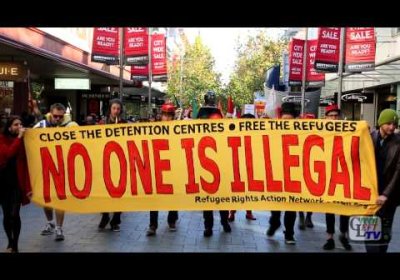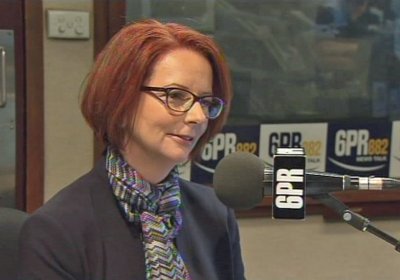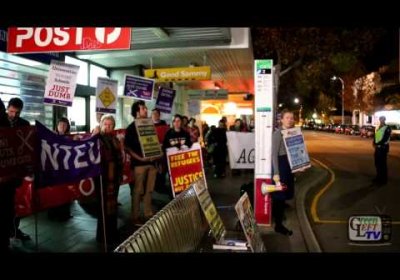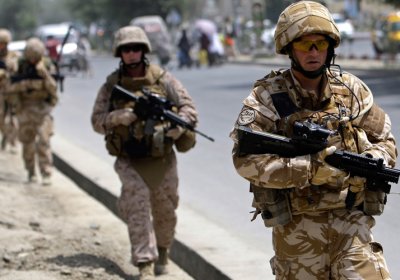Anti-racism
World Refugee Day rally in Perth. Features music from Junkadelic and speeches by Tamil and Hazara refugees, Amer Saabi from the Palestinian community, Rob Callan from Refugee Rights Action Network and Greens senator Scott Ludlam.
Green Left TV's coverage of the Sydney World Refugee Day rally, held on Sunday June 16.
Julia Gillard was greeted by a vibrant protest by students, unionists and Aboriginal activists when she spoke in Fremantle on June 12.
Documentary about the national refugee rights convergence to the Yongah Hill detention centre near Northam in April 2013. Features interviews with Jay Fletcher, Liz Walsh, Ben Solah, Mark Goudkamp and others. See also Green Left's live blog from the convergence with photos, videos and other reports.
- Previous page
- Page 160
- Next page









